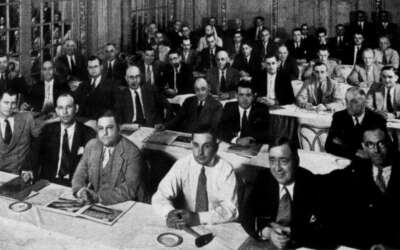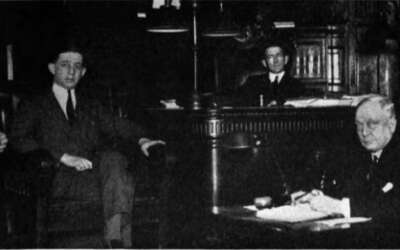Low Hanging Fruit: Transparent Sales Leadership!
A couple of months ago, at a talk I was giving in Philadelphia, someone in the audience asked me a question:
“What is the optimal sales compensation structure?”
My response was what one called “an epic rant” on how much variable compensation plans get way too much attention and credit for the results of sales organizations. Me, being a neuro-nerd, softly touched on the research, but I hadn’t truly done my homework.
Now I have!
This topic has consumed my down-time ever since. I’m ear-deep in neuroscience books again and tearing apart the research. I have four tabs open with different TED Talks on my laptop right now. My morning workouts have been consumed by podcasts on motivation. I have notes written everywhere.
The issue? What really drives salespeople? Does variable compensation really drive desired behavior? Do changes to the comp plan result in the best changes in results?
And what I found is a strong case to be made for the concept of “The Transparent Sales Leader”.
Here’s three data points to start our journey:
Part 1: Employee “Engagement”
As of last year, Gallup released a report that shows that only 34% of employees in the US are “engaged” at work.1
Gallup’s definition of engaged: “those who are involved in, enthusiastic about and committed to their work and workplace”
53% are disengaged. 13% are actively disengaged – defined as “miserable work experiences”.
As it turns out, the primary driver of engagement is directly connected to the approach and actions of their immediate manager and company leadership.
Why would sales be any different?
Part 2: When “extrinsic rewards” work, and when they don’t
Extrinsic rewards (things like commissions and bonuses) may be effective only when the task doesn’t have intrinsic value. Extrinsic rewards are designed to get us to do things we may find painful. If you dislike what you do, you probably need a more extrinsic reward to do it. If you’re not engaged, variable compensation is a requirement.

(The research on this topic is fascinating. I’ve been reading some of Dan Ariely’s research and books on the topic…the book Payoff is an easy read full of nerdy good nuggets.)
Part 3: Organizational Self Diagnosis
In a recent Glint study, when HR professionals were asked to self-diagnose the percentage of their employees who are “engaged”, their number was more along the lines of 70%.
In other words, the percentage of employees who are “engaged” in your organization is likely half of what you think. Gallup says 34%…and their study proclaims it’s the highest it’s been in years.2 Organizations self diagnose at 70%
What’s the answer?
I’m focused on building this out right now, but the answer is a combination of:
Simplified variable compensation: It’s here to stay, and will continue to be necessary given that even hitting HR’s self-diagnosed 70% engagement is an almost impossible bar to hit. The majority of sellers will still be “disengaged”, and need extrinsic motivators. However, it must be a simple, proactive driver versus a reactive (i.e., I just closed a deal, now I’ll go figure out how much I’m gonna make on it) complicated plan.
A Transparent Sales Leadership framework: Can you imagine the impacts on an organization by even a little bit? Like…simply taking engagement up from 34% to even 40%?
This feels like low-hanging fruit for sales organizations.
A couple of simple ideas:
1) Enable them to see forever what they’ve built: Your top reps just had a great year, then start the new fiscal year at zero…with everyone else, right? You’re subconsciously disengaging your stars when you do that.
A study Journal of Economic Behavior & Organization shows that when you build something then aren’t able to clearly see it’s full value to yourself, the organization, etc., you become less motivated to build again.
Give quota achievers extra status that sticks with them throughout their tenure as an employee in your organization. Or, have a list or a wall with every current customer of the organization, how much revenue that customer brings to your organization, and what rep closed it. Maybe even what SDR sourced it. Have it up there forever.
2) Give their work meaning: What matters? Them hitting their target? From a “meaning” perspective, probably not. What are they actually helping the customer do? How are they impacting the lives of their customer’s customer? Help them see the impact.
3) Increase rep ownership: Give them more ownership of their accounts, their workspace, and their environment. Micromanaging is an obvious way to crush engagement. But even open floor plans decrease engagement, too. Autonomy and control are massive drivers of engagement.
4-X) …I’m working on it. More coming soon…but I almost literally can’t stop reading and researching. The research seems to be about seven years ahead of where the sales profession is currently. Doing what I can to get it to catch up.
Bottom line is that there are so many things you as a leader (or future leader) can do to increase that engagement level, which will drive incredible results. There’s a sales leadership framework I’ve built (but it’s not quite ready for a full share) that helps a lot. But until that’s ready, keep the variable comp – so that it’s a reward for doing great work instead of a motivator to get up in the morning. Focus on engagement – because intrinsic engagement coupled with the reward of variable compensation is a magical combination.
What do you think? Am I on to something here?
1 https://news.gallup.com/poll/241649/employee-engagement-rise.aspx
2 The exact quote is “ fewer than 70% of their employees are engaged.”





0 Comments